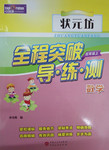题目内容
The type of things we remember are different. Although we tend to remember good things in our lives, bad things have a way of sneaking up (悄悄接近) on us. One such thing I remember happened when I was 10 years old.
I decided to ride my bicycle over a near-by stream. I carefully planned the adventure, and asked my friends to go there and have a watch. This was going to be my moment! I started riding down the hill, picking up speed and then pulled up on the handlebars (自行车把手) at the precise moment and landed face-first into the muddy stream! That painful moment is one that I will never forget. As long as I live, I will remember the pain and embarrassment at that moment. When we do something stupid or thoughtless, it has a way of sticking with us. Fortunately, good momories have a way of over-riding the bad ones. I have memories that I gladly remember, like what happened today.
I had my first conversation with my son today. It was not anything profound. It was a simple connection between father and son. It was one of those bonding moments that you can’t plan or force. They just happen on their own. I was walking into the living room where my son sat in bed watching television attentively. Then he looked up at me and pointed to the television and babbled (含糊的说) something. I asked him if he was watching SpongeBob (海绵宝宝) and he nodded his head and said,“Yes”. It was at that moment that his eyes lit up and it was as if we both realized we had communicated. And how happy I was! Sure, at eighteen months, he probably did not realize what communication was like, but his joy at that moment was evident. It was a moment I will remember all my life.
Good or bad, memories can last a lifetime. As for an unpleasant memory, though we can’t forget it we can get lessons from it and it is like a mirror that will warn us against making such mistakes again. As for a good memory, we should try our best to enjoy it during our lifetime. Such moments are the treasures that we store up forever.
1.The author will always remember what happened when he was ten because he .
A.drew up a careful plan before taking a ride
B.made a fool of himself in face of his friends
C.hurt himself seriously while riding down the hill
D.succeeded in taking a big adventure over a stream
2.The underlined word “profound” in Paragraph 3 probably means “ ” .
A.needing much thought
B.simple and easy to solve
C.very funny or interesting
D.that often takes place
3.Why was the author so happy when hearing his son’s answer “YES”?
A.Because his son respected the author and was very understanding.
B.Because it was the fist time he communicated with his little son.
C.Because his little son didn’t make trouble and behaved quite well.
D.Because his son could understand the meaning of SpongeBob.
4.The author mainly tells us in the last paragraph that .
A.one’s memories can last all one’s lifetime.
B.we should forget the unpleasant memories.
C.good memories are the treasures of our life.
D.how we should deal with our memories.
1.B
2.A
3.B
4.D
【解析】
试题分析:文章通过举例说明人们有好的和坏的记忆,并告诉读者怎么正确对待它们。
1.推理题:从第二段的描写和句子:and landed face-first into the muddy stream!说明作者在朋友面前丢了脸。选B
2.猜词题:从后面的句子:It was a simple connection between father and son.说明这不是意义深远的事情。选A
3.细节题:从第三段的句子:I had my first conversation with my son today. 可知答案是B
4.段落大意题:从最后一段可知作者告诉读者怎么对待坏的和好的记忆。选D
考点:考查人生百味类短文
点评:考查形式多样,在解答这类问题时要求学生抓住题干文字信息,再根据句意进行推理判断。

 状元坊全程突破导练测系列答案
状元坊全程突破导练测系列答案Do you know blood types?
Special care must be taken in selecting new blood for a badly injured person, who would be killed by the transfusion (输血) if the blood is too different from his own.
There are four basic types of blood A. B. A B. and O. Blood type, like hair and height, comes from parents. Basically, A and B can not be mixed. AB, sometimes called the universal recipient (万能受血者), may receive A or B,. O type, often called the universal donor (万能输血者), gives his blood to any other group. Patients usually receive nothing, but salt or plasma (血浆) until their blood can be matched as exactly as possible in the blood bank of a hospital. There is a relationship between your blood type and your nationality (国籍). Among Europeans, about 42 % have type A while 45 % have type O. The fewest is the type B.
【小题1】Which of the following show the correct relationship in blood transfusion ("→"means giving blood to...)?



| A. | B. | C. | D. |
| A.after he receives salt and plasma | B.before he feels uncomfortable |
| C.when the new blood fits his body | D.as soon as accident happens |
A. about B. no more than C. less than D. at most